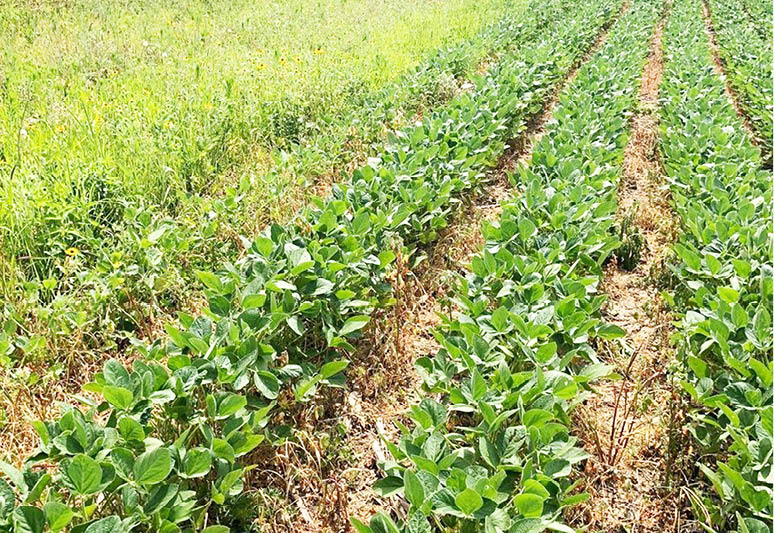Soya beans, sesame and sorghum now dominate farmlands in Katsina State as chemical fertiliser and other inputs have gone beyond the reach of most farmers in the state.
The price of fertiliser across the country has become a major source of concern among farmers, especially in the production of maize and other non-legume crops.
I may be the next Senate President, says candidate who refused to step down for Lawan
‘11.2m Nigerians living with diabetes’
Malam Isah NaAllah, a farmer from Musawa LGA, said their strategy this year is to produce crops that require less fertiliser.
“We have no choice but to cultivate crops like soya beans, sesame and sorghum. Maize production this year, especially in large-scale, requires huge capital.
“Depending on the variety, a bag of fertiliser sells at between N17,000 and N30,000 with NPK15:15:15 costing the highest price.”
He added that those that produce tomatoes and Irish potatoes in the dry season suffered from the high cost of fertiliser, a factor that pushed the market price of the produce to a record high.
NaAllah further said the fertiliser policy of the federal government has failed as farmers were left to their own devices in sourcing the produce at the prevailing market prices.
“The NPK 20:10:10 that was pegged at N5,500 by the federal government is now sold at N17,000; Indorama and Dangote Urea varieties are not less than N20,000.
“The policy that effectively worked for farmers was that of Goodluck Jonathan’s regime when a farmer would rec”Fish is one of the healthiest and cheapest proteins for human beings, and as we strive to end eive a text message of his fertiliser allocation, how much to pay, where to effect the payment and pick up the produce,” NaAllah also said.
Shehu Abdullahi, a fertiliser dealer in Malumfashi, attributed the unfortunate development to the political crisis between Russia and Ukraine, which are the major source of chemicals for fertiliser blending.
“The crisis between Russia and Ukraine is the major factor for the skyrocketing price of fertilizer. Some of the dealers also exploit the situation by transporting the available produce to our neighbouring countries, where they earn foreign exchange,” he said.
He, however, expressed hope that the price of the product would come down very soon.
Meanwhile, large-scale farmers have decried the high cost of diesel which has caused a hike in the charges for harrowing, ploughing and other mechanised farm activities.
Alhaji Muhammadu Sani, a farmer from Malumfashi LGA, said the costs of harrowing and ploughing have more than doubled compared to last year.
“I recently paid N50,000 for harrowing that cost me N20,000 last year. Is only because rice farming requires it or many farmers would have avoided it this year.
“Some of us are yet to pick up in our farming activities for lack of capital. Everything, from seeds, fertiliser, pesticides and harrow/ploughing is costly this year,” he lamented.
Sani added that even herbicides and pesticides were fast getting beyond the reach of farmers as their prices per litre now range from N2,300 to N5,500 for selective, non-selective and systemic herbicides as well as various pesticides.
He further said many farmers have resorted to the old manual ways of farming as a litre of diesel was sold at N655 as against N225 it was sold in January last year.
“Some of us planted our farms without tilling or harrowing the soil and depend largely on organic manure to minimise costs,” Sani said.
Andrew Yuha, an agricultural economist, said the developments are clear signs that farm produce will be costlier in the next harvest season.
“Demand for food is always increasing with our growing population and poultry business has increased the market demand for maize, soya beans and sorghum. Now that farmers have challenges in the cost of inputs and labour, we should expect farm produce to be costlier in the next harvest season,” he said.
He added that they don’t know the situation of things in Saminaka area of Kaduna State but that with the concentration of farmers in Katsina State on soya beans, rice, sesame and sorghum, maize stood to be in short supply at least within Katsina markets in the next harvest season.
Yuha enjoined both the federal and state governments to strengthen their fertiliser policies for easy access to local farmers to produce sufficient food.
Insecurity
Farmers in Danja, Bakori, Funtua and Kankara in Katsina State have attributed the lingering bandits’ attacks in their areas to the absence of vigilantes (aka Yan’ Sa Kai).
Malam Aminu, a resident of Gwauruwa in Funtua LGA, said last Wednesday that bandits invaded their village and rustled six tillage cows.
“With the abolition of Yan’Sa Kai, bandits now have the freedom to invade villages and threaten farming activities.
“Last Wednesday, bandits stormed our village and carted away six tillage cows. They tried to also attack Sabuwar Abuja area of Dutsen Reme the same day but people mobilised and chased them.”
He called on government to provide a special task force on banditry comprising vigilantes, civil defence, police and soldiers to stem the activities of the miscreants in the state.
A similarly attack by bandits occurred last Saturday at Gidan Dinya and other hamlets around Unguwar Balarabe of Danja LGA, where one person was killed, another wounded and unspecified number of cattle rustled.
Umaru Mamman, a farmer in Danja, said the bandits’ aim was mainly the cattle as they did not abduct anybody.
Because the affected villages have no formidable defence mechanism, they have devised survival strategies in this farming season.
This reporter discovered that in Guga village of Bakori LGA, it is not allowed to cultivate long crops like sorghum, maize and even soya beans within the range of four hundred meters north, south, east and west of the village.
Hussaini Abdullahi said the strategy was to avoid providing hiding places for the bandits.

 Join Daily Trust WhatsApp Community For Quick Access To News and Happenings Around You.
Join Daily Trust WhatsApp Community For Quick Access To News and Happenings Around You.


